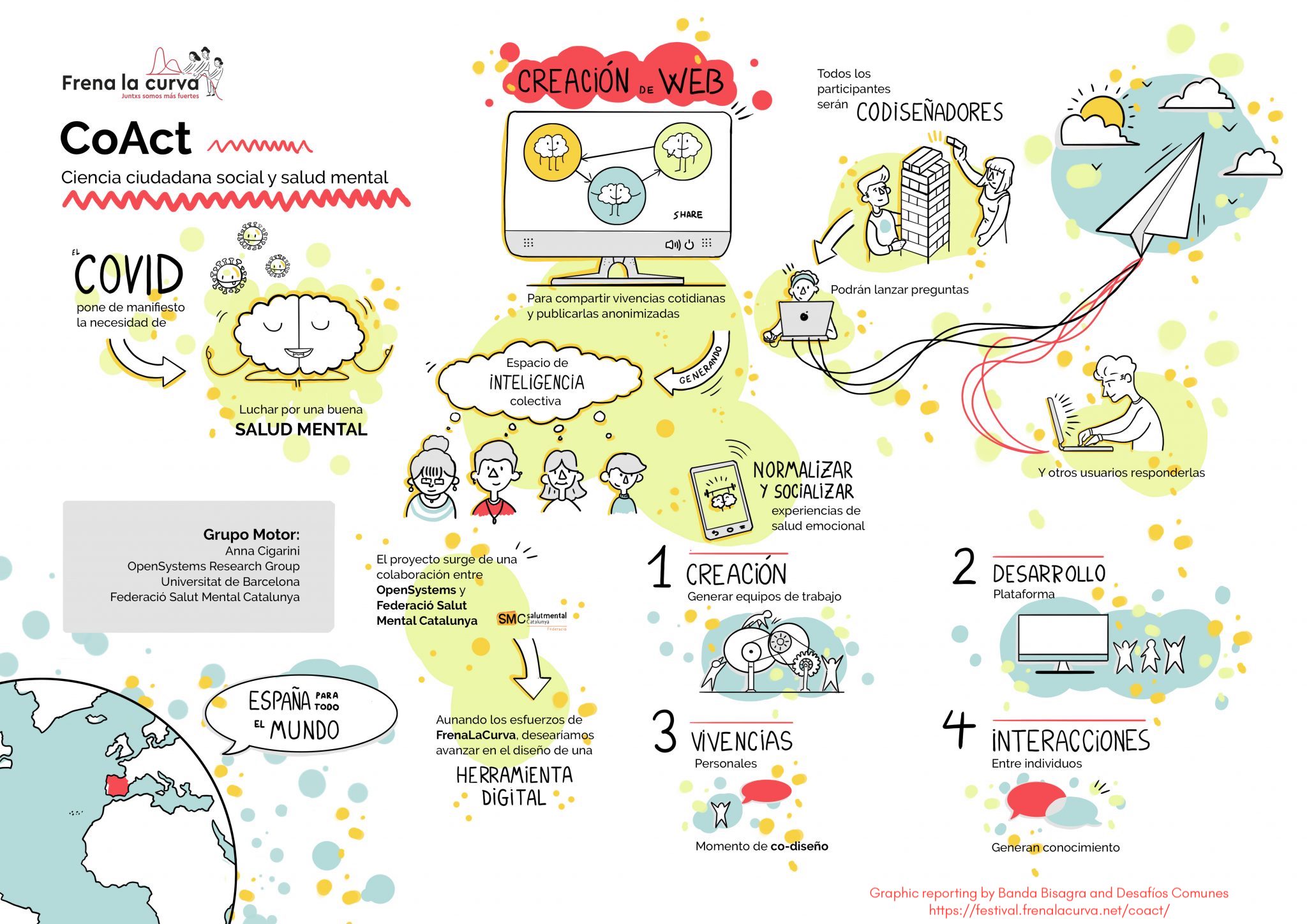
CoActFrenaLaCurva project
Francisco Sanz
July 26, 2020, 10:31 p.m.
written by Isabelle Bonhoure and Anna Cigarini
In an attempt to respond to the COVID-19 crisis and to explore co-creation through digital platforms and tools, two CoAct partners (Universitat de Barcelona and Federació Salut Mental Catalunya) developed the CoActFrenaLaCurva project devoted to investigate the mental health informal support networks in times of Coronavirus.
The project was among the 10 finalists of the Common Challenges call of the FrenaLaCurva (Slow down the Curve) initiative, which is a citizen platform where volunteers, entrepreneurs, activists, social organizations, makers and laboratories of public and open innovation, cooperate to channel and organize social energy and civic resilience in the face of the Covid-19 pandemic (coronavirus) giving a response from civil society complementary to that of the government and essential public services.
During one-week digital hackathon, from 26th of April to 2nd of May of 2020, a wide range of people collaborated: from individuals with an experience of mental health and health professionals, to web designers and visual artists, to representatives of administrations or activists, from Europe to Central and South America (fully reported, in Spanish). Telegram was used for daily communications, coordination and feedback while jit.si video conferences were used as spaces for discussion, decision-making and validation throughout the different phases of the co-creation process.
The project, based on the CoAct R&I Action on Mental Health Care, aimed at co-creating a citizen social science prototype platform to collect personal stories and strategies of care in order to map the network of informal social support for mental health during and after the pandemic. The methodological approach followed citizen social science principles, giving project members an equal seat at the table through active participation since the very beginning of the co-creation process.
Feedback from participants, collected by CoAct partner ZSI, showed that the digital tools helped to create a space for collective learning about more communal values of collaboration and solidarity, a recurrent theme across participant assessment of the impact of the process. The broad variety of expertises and geographical origins, which would hardly be possible in physical settings, helped to amplify the scalability and reach of the initiative while creating a community of committed ambassadors for the future project development. Contrary to physical settings, however, digital tools posed extra challenges to coordination among geographically dispersed and heterogeneous forms of participation, hinder empathy generation, and require the design of tools for informed consent procedures, information access and sharing that is to be adapted to distributed knowledge settings.